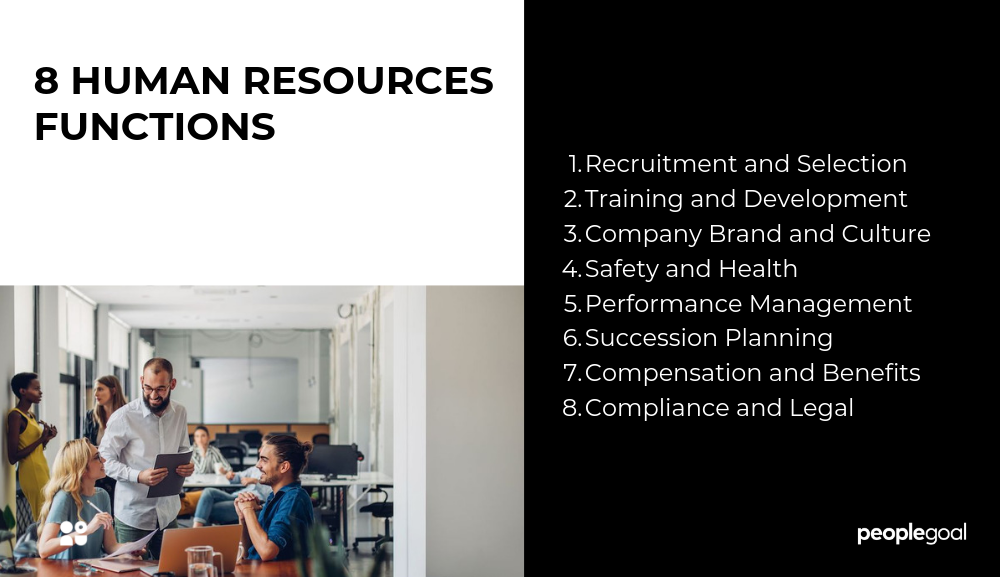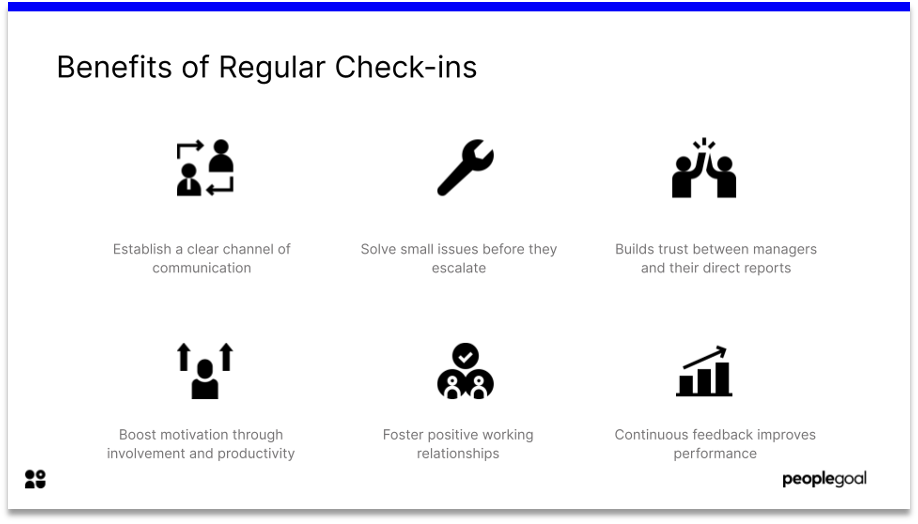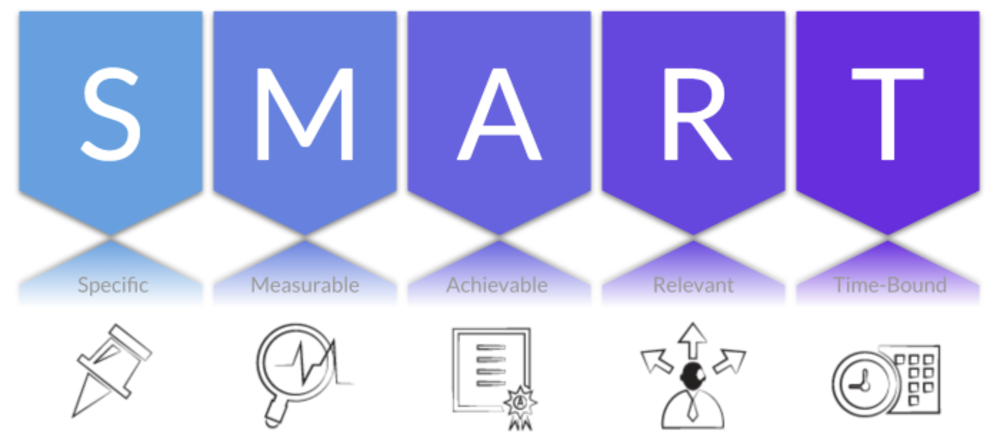When it comes to business performance objectives you’re likely aware that efficiency and productivity are crucial. But how do you successfully achieve these? The key to having good all-round performance is five performance objectives: quality, speed, dependability, flexibility and cost.
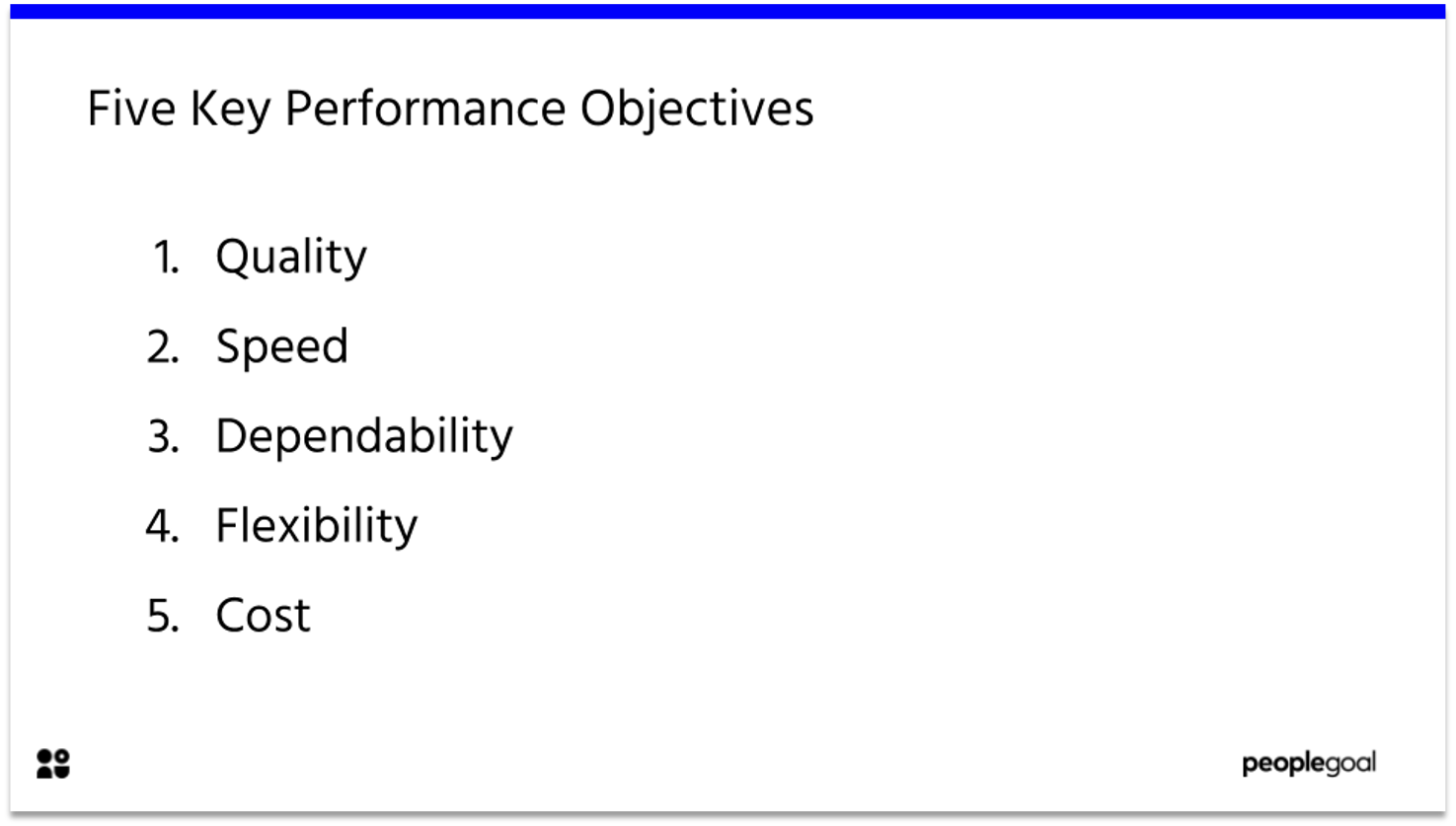
Performance Objective 1: Quality
Quality is the visual sign of how well an operation does what it does. It’s a consistent indicator which customers and staff base their expectations around.
Does the product work as it should? Or has it been made with low-value parts that undermine its integrity? Quality is a fundamental aspect of performance and, because of this, has a huge influence on whether a customer is satisfied or not.
For example, giving each individual warehouse packer the responsibility to pack their own boxes improves quality as mis-packs are made less likely to occur.
In terms of the operation principles, quality can create the potential for better services and products which reduce costs in the long run thanks to having more satisfied customers.
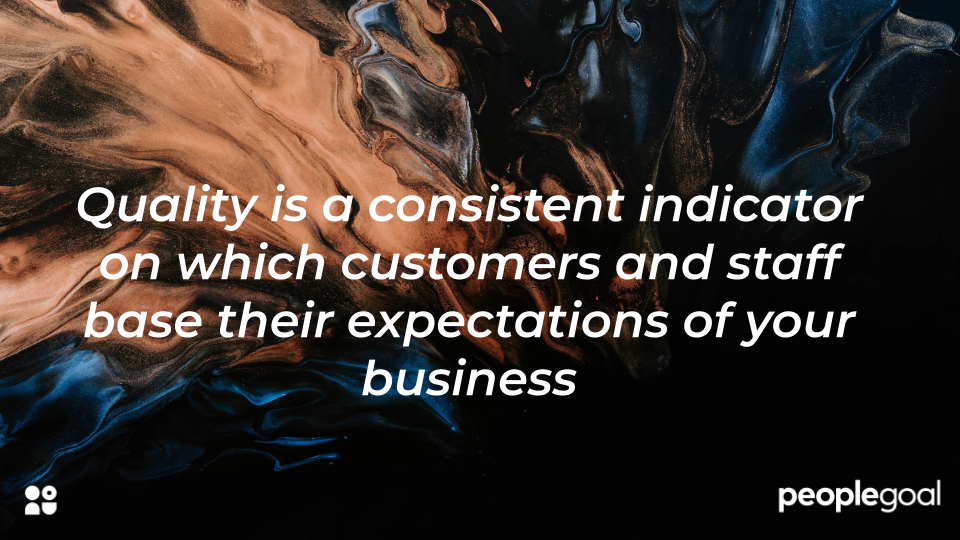
Performance Objective 2: Speed
Speed is the turnaround time between customers ordering a product or service and the point at which they receive it. When an organization delivers the goods or services on time, the more likely a customer is to be satisfied with their experience.
If you can provide a service or product faster than other companies without compromising on quality then you are already off to a winning start.
In terms of operation principles, high speed can allow for faster delivery of services, therefore saving costs.
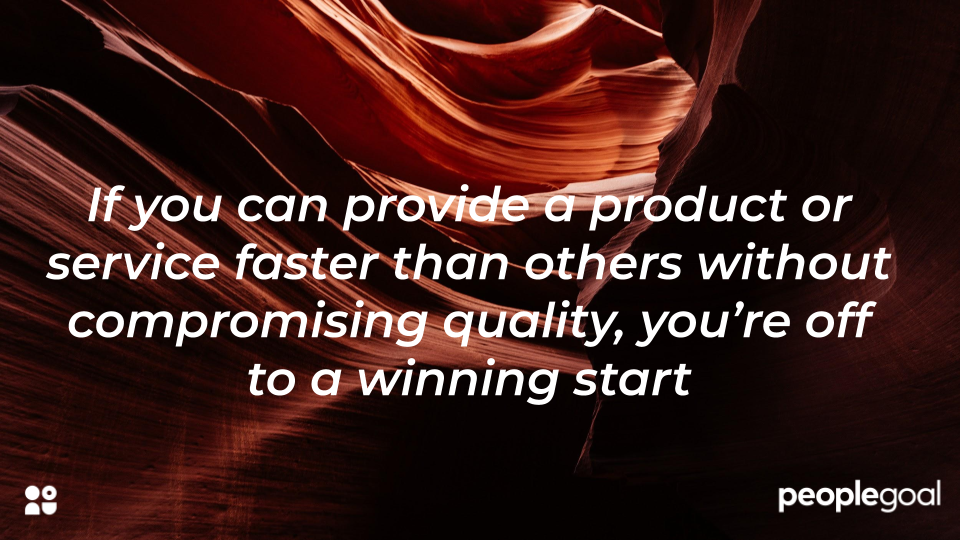
How can you keep track of your business performance objectives? Goal setting, whether it’s through Objectives & Key Results or SMART Goals gives you a framework to track your targets, progress and results, and helps you to communicate these company-wide.
Performance Objective 3: Dependability
Dependability means that customers can rely on your organization to receive their goods and/or services as and when promised. While this may not affect the chances of a customer selecting the service – as they have already ‘consumed’ the product – it influences whether the customer returns to make a future purchase or recommends your business.
No matter how cheap or fast a pizza is made by a takeaway company, if the customer can’t depend on it to be delivered on time or to the correct address, then they will go elsewhere.
In terms of operation principles, dependability is important in providing the reliable delivery of service and products.


The Essential Guide to OKRs will show you how to create an Objectives & Key Results process that you can implement across the organization to track your performance objectives.
Performance Objective 4: Flexibility
Flexibility is the means of changing an operation to match a customer’s requirements. This may involve changing what the operation does or how it works so that the service is bespoke.
Customers are likely to require change for four reasons:
- Product/service flexibility occurs in order to introduce a new or modified product.
- Mix flexibility is the ability to have the variety of products available grow.
- Volume flexibility involves the output of a process and being able to produce different quantities/volumes.
- Delivery flexibility is being able to change the timings of delivery in a product/service.
Being flexible gives the potential for a business to hold a competitive edge due to their wider variety, different volumes and varying delivery dates.
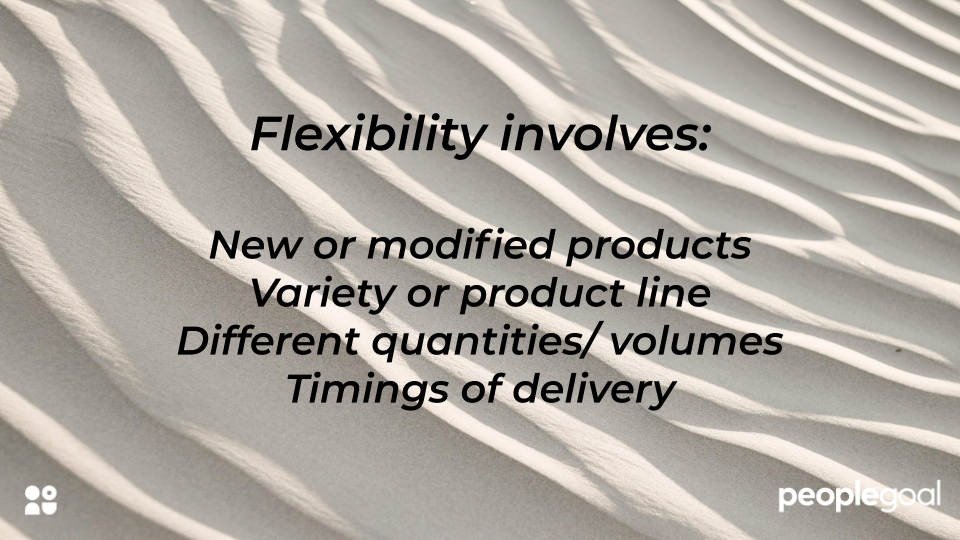
Performance Objective 5: Cost
Cost is an important factor for companies which compete directly on rates. The lower a company can keep its production costs, the lower they can have their customer-facing prices.
Even companies who do not compete on price want to keep their costs as low as possible while still maintaining the levels of quality, speed, dependability and flexibility that their customers demand.
The minimalization of costs is as important so that resources can be spared to grow other areas of the business.
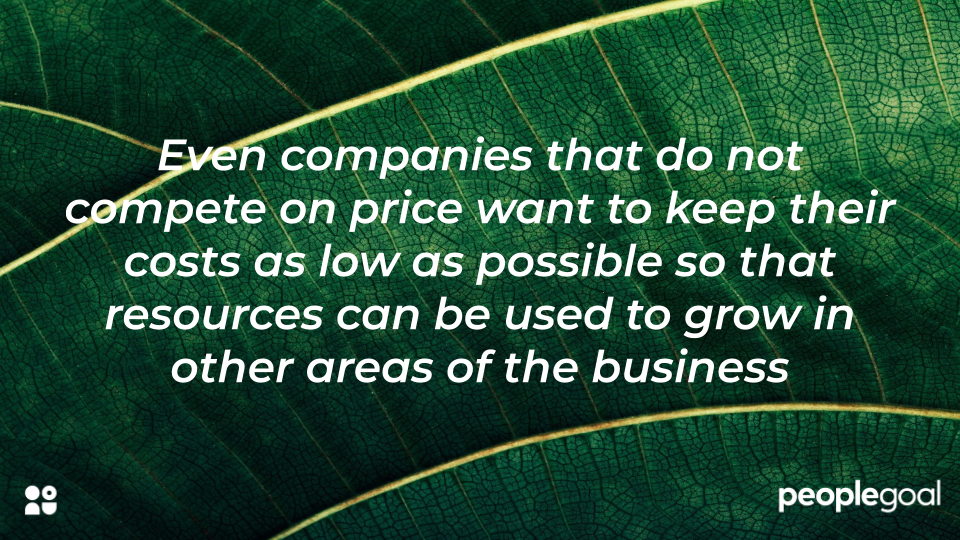
You should dive more into the specifics of each performance objective and decode some of those tricky acronyms with our guide to Key Performance Objectives and Indicators.

These performance metrics are relatively straightforward and should be applied to all aspects of your business operatiosn. By achieving each of these performance objectives you can satisfy customers and improve your profit.
Ready to 3x Your Teams' Performance?
Use the best performance management software to align goals, track progress, and boost employee engagement.

